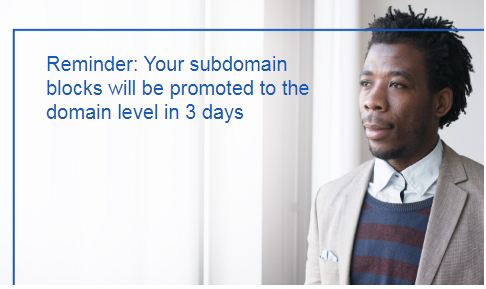Everything You Need to Know About Debt Consolidation loan
If you're struggling to keep up
with multiple payments each month, you may want to consider debt consolidation.
This is a process where you take out one loan to pay off all of your other
debts. It can be a great way to simplify your finances and get back on track.
In this article, we'll discuss everything you need to know about debt
consolidation loans- including how they work, the benefits they offer, and the
different types available. We'll also provide some tips for choosing the right
loan for your needs.

What Is a Debt Consolidation loan?
Debt consolidation is a form of
debt refinancing that entails taking out one loan to pay off many others. This
commonly refers to a personal finance process of individuals addressing high
consumer debt, but occasionally it can also refer to a country's fiscal
approach to consolidate corporate debt or government debt. The process can
simplify your monthly payments and reduce the total amount of interest you're paying
on your debts. It can be an effective way to get control over your finances and
become debt-free.
There are two main types of debt
consolidation loans: secured and unsecured. A secured loan is backed by
collateral, such as your home equity or a vehicle. An unsecured loan doesn't
require any collateral, but the interest rates are typically higher.
Benefits of Debt Consolidation loan
There are several benefits of debt consolidation loans, including:
- Simplifying your monthly payments into one single payment
- Reducing the total amount of interest you're paying on your debts
- Getting control over your finances and becoming debt-free
- Improving your credit score by consolidating high-interest debts onto one low-interest loan
Types of Debt Consolidation loan
There are two main types of debt
consolidation loans: secured and unsecured. A secured loan is backed by
collateral, such as your home equity or a vehicle. An unsecured loan doesn't
require any collateral, but the interest rates are typically higher. You'll
need to consider the type of loan that best suits your needs and financial
situation.
Choosing the Right Debt Consolidation loan
There are a few things you'll need to consider when choosing a debt consolidation loan, including:
- The interest rate and fees associated with the loan
- The repayment term and monthly payment amount
- Whether you're comfortable putting up collateral for a secured loan
- Your credit score and history
If you're struggling with debt,
consolidating your loans can be a great way to simplify your finances and get
back on track. Be sure to do your research and choose the right loan for your
needs. A debt consolidation loan can be an effective tool for becoming
debt-free. Do you have any questions about how they work? Let us know in the
comments below!
We hope this article has been
helpful in understanding everything you need to know about debt consolidation
loans. If you have any questions, please feel free to ask in the comments
section below. Good luck on your journey to becoming debt-free!
Debt Settlement vs. Debt Consolidation?
What's the Difference?
If you're considering debt consolidation, you may also come across the term "debt settlement." While both options can help you become debt-free, there are some key differences between the two.
With debt consolidation, you take out a new loan to pay off your existing debts. This results in one monthly payment, but it may take longer to pay off your debt and your interest rates may be higher.
Debt settlement, on the other hand, involves negotiating with your creditors to settle your debts for less than what you owe. This can result in a lower overall payoff amount and a shorter repayment timeline, but it will also likely damage your credit score.
So which option is right for you?
It depends on your individual financial situation. Be sure to speak with a
financial advisor to get personalized advice before making any decisions.
What's the Difference Between Debt Consolidation and Debt Settlement?
If you're considering debt consolidation, you may also come across the term "debt settlement." While both options can help you become debt-free, there are some key differences between the two.
With debt consolidation, you take out a new loan to pay off your existing debts. This results in one monthly payment, but it may take longer to pay off your debt and your interest rates may be higher.
Debt settlement, on the other hand, involves negotiating with your creditors to settle your debts for less than what you owe. This can result in a lower overall payoff amount and a shorter repayment timeline, but it will also likely damage your credit score.
So which option is right for you?
It depends on your individual financial situation. Be sure to speak with a
financial advisor to get personalized advice before making any decisions.
FAQ's
About Debt Consolidation
If you're considering debt
consolidation, you probably have a lot of questions. Here are some of the most
frequently asked questions we get about consolidating debt:
What is a debt consolidation loan?
A debt consolidation loan is a new
loan that you take out to pay off your existing debts. This results in one
monthly payment, but it may take longer to pay off your debt and your interest
rates may be higher.
How do I qualify for a debt consolidation loan?
To qualify for a debt consolidation
loan, you will need to have good credit and enough income to make the monthly
payments. You will also need to have collateral, such as a home or car, to
secure the loan.
What are the benefits of consolidating debt?
The main benefit of consolidating
debt is that it can save you money on interest. It can also simplify your
finances by giving you one monthly payment to make.
What are the risks of consolidating debt?
The main risk of consolidating
debt is that it may take longer to pay off your debt. This can lead to more
interest accruing and you may end up paying more in the long run. You also risk
damaging your credit score if you miss any payments.
Should I consolidate my debt?
That depends on your individual
financial situation. Be sure to speak with a financial advisor to get
personalized advice before making any decisions.
How do I consolidate my debt?
There are a few ways to
consolidate debt, but the most common is to take out a consolidation loan. You
can also use a balance transfer credit card or a personal loan. Be sure to shop
around for the best rates and terms before you make any decisions.
Searching Tags:
- debt consolidation
- debt consolidation loan
- debt consolidation loan online
- debt consolidation loan rates
- debt consolidation loans
- consolidate debt
- consolidating debt
- credit card consolidation
- student loan consolidation






